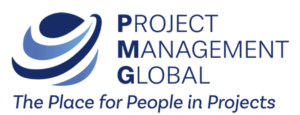
The US presidential election, has presented one of the most unexpected results in modern history, and while it is still too early to establish all of the key factors that led to the Republican win despite the supposed odds against its candidate President Elect Donald Trump, we can as project managers seek to extract learnings from how the campaigns were run and the importance of the relationship with the electorate – The Countries ‘Stakeholders’. The Importance of Stakeholders In both politics and project management, stakeholders are the lifeblood of success. They hold the power to influence decisions, allocate resources, and ultimately determine the project’s fate. Ignoring or alienating key stakeholders can lead to delays, budget overruns, and project failure. Crafting the Right Message A well-crafted message is essential to resonate with stakeholders. It should be clear, concise, and tailored to the specific audience. Consider the following: Finding Common Ground Despite differing opinions and priorities, it’s possible to find common ground with stakeholders. Look for shared goals and values, and focus on areas of agreement. By emphasizing collaboration and compromise, project managers can build consensus and avoid conflict. Keeping Stakeholders Engaged Effective communication is key to keeping stakeholders engaged. Consider the…

Whether you’re an experienced professional or just stepping into your first project roles, understanding the nuances of portfolio management can open a window of opportunity for you. And propel your career to new heights of greatness. But let’s start by examining exactly what is Portfolio Management? At its core, portfolio management is the strategic process of overseeing a collection of projects or programs to achieve specific organizational objectives. While project management focuses on executing individual projects and program management coordinates related projects, portfolio management takes a higher-level view, ensuring alignment with business goals, resource optimization, and risk management across the entire portfolio. Read my guide to Portfolio Management and the role of the PMO For further information here is a recommended reading list, to instantly support development of your learning. And guide you through the core competencies needed for portfolio delivery: Distinguishing Portfolio Management from Project and Program Management Project and program management activities may typically operate together and are essentially components of the same project lifecycle. However, Portfolio Management operates at a different level entirely and for its own distinct purposes. Below is a summary of each, note; that despite the varying applications, it is possible for all three to…

Embarking on a new role as a Program Manager is an exciting and challenging journey. Whether you are stepping up to a more senior position or taking on a new project, the first 3 to 6 months are crucial for setting the tone of your leadership and often act as a barometer for future success. In today’s article, on how to pivot to a program manager, we will explore the steps you’ll need to take before starting your new position. As well as your priorities during those initial weeks and months that will help provide you with a roadmap for success. Let’s get started by nailing the vocabulary of program management, as you pivot to your new program role. Download our Vocabulary Guide here Now back to the topic at hand. The run up to Day One: Laying the Groundwork for Success 1. Understand the Landscape: – Conduct a thorough analysis of the program’s history, objectives, and current status. – Familiarize yourself with the organizational structure, culture, and key stakeholders. 2. Connect with Key Players: – Reach out to your future team, stakeholders, and sponsors. – Schedule introductory meetings to gain insights into their expectations and concerns. 3. Assess Documentation:…

Hey there, fellow project management warriors! One of my favorite books, that I first read many years ago, and that I still refer to today is ‘The 22 Immutable Laws of Marketing’ by Al Ries and Jack Trout. Over the years it has served me well – even as a project manager. Its no nonsense approach to Marketing and the humor with which it shares the critical laws of the discipline. Well I wanted to create a version of this great book for project management. To capture some of the critical laws that I think ever practitioner should abide by. And to be clear these laws that I present here, are hard-won wisdom, from the battlefield and trenches of project management gathered over my 25-year career in project management. Drawing inspiration from the legendary “22 Immutable Laws of Marketing,” I’ve crafted a set of timeless principles to guide you on your project journeys. So, buckle up, grab a coffee, and let’s jump head first into the 22 Immutable Laws of Project Management. Every project needs a strong leader, someone who can steer the ship through stormy seas and keep the crew motivated. Don’t be afraid to take charge, even if…

Insight from Roselyn Unegbu As we come to the end of another month celebrating Black History in the UK, our article provides powerful reflection on the current inequalities existing within the project management field, and in particularly why talented female project leaders from the Global majority are yet to fully make their mark in the industry. We hear from Ros Unegbu, who’s initiative Projects in Prism seeks to address this by creating a safe space for women leaders be mentored, nurtured and to thrive in the project management world. How Projects in Prism seeks to create a safe space for women project managers from a Global Majority to be mentored, nurtured and thrive in the project management world. I love the practice of project management; the logic of it, the need for structure, and the processes that govern it. Sometimes, your stakeholders make life difficult no matter how well-meaning your intent and despite a seemingly successful outcome. Yet it also presents opportunities for creativity and innovation, promising an often infuriatingly interesting experience and ensuring a lack of boredom, regardless of sector. And yet, knowing the joys and tribulations, the successes, and failures and the lessons learned along the way, my…

Whether you’re an experienced professional or just stepping into your first project roles, understanding the nuances of portfolio management can open a window of opportunity for you. And propel your career to new heights of greatness. But let’s start by examining exactly what is Portfolio Management? At its core, portfolio management is the strategic process of overseeing a collection of projects or programs to achieve specific organizational objectives. While project management focuses on executing individual projects and program management coordinates related projects, portfolio management takes a higher-level view, ensuring alignment with business goals, resource optimization, and risk management across the entire portfolio. Read my guide to Portfolio Management and the role of the PMO For further information here is a recommended reading list, to instantly support development of your learning. And guide you through the core competencies needed for portfolio delivery: Distinguishing Portfolio Management from Project and Program Management Project and program management activities may typically operate together and are essentially components of the same project lifecycle. However, Portfolio Management operates at a different level entirely and for its own distinct purposes. Below is a summary of each, note; that despite the varying applications, it is possible for all three to…

Within today’s complex and fast-paced project management landscape, professionals are constantly bombarded with tools and techniques designed to enhance their skills and streamline their workflows. Yet, it’s often surprising how many project managers fail to effectively leverage these resources to navigate the challenges of both their professional and personal lives. Dr. Tammy Watchorn, author of “The Change Ninja Handbook” and “The Change Ninja Returns and this time it’s personal,” offers valuable insights into why this disconnect occurs and how project managers can bridge the gap. Tammy shares a compelling anecdote about a training participant who, despite acquiring valuable change management skills, struggles to apply them during a personal vacation. Highlighting a common phenomenon: the tendency to compartmentalize our professional and personal lives, leading to a missed opportunity to utilize transferable skills. As the piece challenges our notion of what work-life balance really is. And how project managers achieve translating their professional expertise to their personal lives. The concept of the “glass front door,” represents a metaphorical barrier that separates work and home, preventing the application of valuable skills across different domains. By understanding this phenomenon and implementing strategies to overcome it, project managers can become more effective leaders, not only…

In this edition, we do a deep-dive into the four types of projects that you need to nail your next promotion. These projects are crucial for your development and to ensure progress on your career path. By mastering each of these types of project, not only will you expand your expertise but you will also elevate your profile and set yourself apart from others in your field. Let’s jump in and look at each type of project on our list in detail: 1. Technical Complexity: Technical complexity involves projects with intricate systems, standards, processes, or technologies. They may be operating in uncertain environments or reliant on novel or unproven technologies. Or simply operating with no clearly defined outcome. The following models provide some insight into how levels of complexity from various contexts have been codified. VUCA – volatile, uncertain, complex, ambiguous. The VUCA framework is mainly aimed at addressing challenges in the corporate environment. Cynefin – a notion that everyone carries connections to the world (tribalistic, religious, geographical, political, emotional, etc.) that aren’t immediately evident, until we observe ourselves from a grounded position. VPEC-T or VIPER – The premise of this model is that friction in enterprise architecture (EA) often…

In an ever-evolving landscape, the ability to future-proof your project management career is paramount. With technological advancements and shifting business paradigms, staying relevant and adaptable is key to ensuring long-term success in this field. In this edition of the newsletter, we’ll be exploring the strategies for both aspiring and seasoned project managers to thrive amidst the rapidly changing landscape of project management. In the dynamic eco-systems of project management, staying ahead of changes is not just important—it’s essential for long-term success. As industries evolve and new technologies emerge, the ability to test, implement, and review new ways of working becomes a strategic imperative. Embracing innovation isn’t just about adopting the latest tools; it’s about fostering a culture of continuous improvement and staying at the forefront of industry trends. Staying Ahead of Changes in Project Management Positioning yourself at the forefront of industry development and staying ahead of changes is imperative for project managers. This involves not only adapting to new methodologies and technologies but also actively optimizing the new ways of working. Embracing innovation requires both a growth mindset and focus on continuous improvement, where, as a project manager you are willing to explore alternative approaches and challenge traditional practices….

In today’s “post-truth” era, trust is a scarce commodity. Project managers, like all professionals, operate on the foundation of trust. They oversee projects that can impact livelihoods, communities, and more than ever entire societies. Building and maintaining trust requires unwavering ethical conduct. This article explores the critical role of ethics in project management, the benefits it brings, and the consequences for its absence. And how professional organizations are promoting ethical behavior among their members and the wider project community. Imagine a project manager forced to choose between cutting corners for a quick win or upholding ethical standards, potentially sacrificing deadlines or budgets. Ethical dilemmas like these are more common than you might think. As a project practitioner, either working within an organization, or operating independently, here’s why ethical project management matters: Trust and Reputation: Trust is the bedrock of successful project management. Clients, suppliers, colleagues, and stakeholders all need to believe in the integrity of the project manager. An ethical reputation attracts better talent, fosters stronger relationships, and ultimately leads to better project outcomes. Enhanced Performance: Ethical behavior improves morale and employee loyalty. Conversely, unethical practices breed distrust and resentment. A happy, motivated team delivers better results. Long-Term Success: Ethical…








